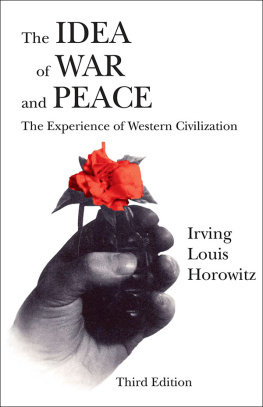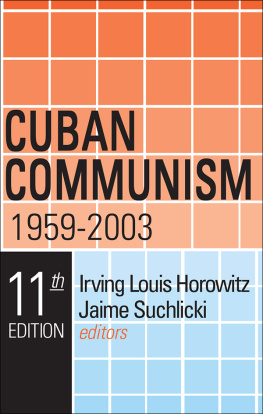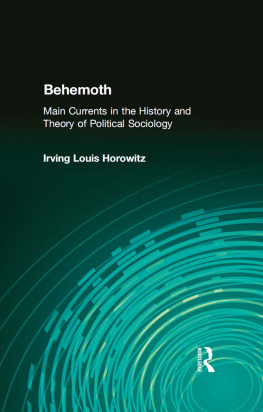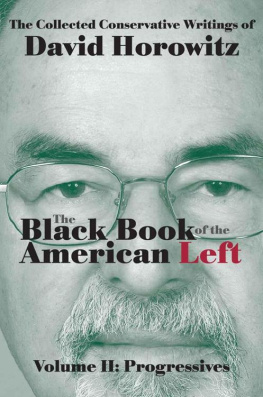First published 1989 by Transaction Publishers
Published 2017 by Routledge
2 Park Square, Milton Park, Abingdon, Oxon OX14 4RN
711 Third Avenue, New York, NY 10017, USA
Routledge is an imprint of the Taylor & Francis Group, an informa business
All rights reserved. No part of this book may be reprinted or reproduced or utilised in any form or by any electronic, mechanical, or other means, now known or hereafter invented, including photocopying and recording, or in any information storage or retrieval system, without permission in writing from the publishers.
Notice:
Product or corporate names may be trademarks or registered trademarks, and are used only for identification and explanation without intent to infringe.
Library of Congress Catalog Number: 88-28795
Horowitz, Irving Louis.
Persuasions and prejudices: an informal compendium of modern social science, 19531988 / Irving Louis Horowitz.
p. cm.
Includes index.
ISBN 0-88738-261-4
1. Social sciencesUnited States. 2. Social scientistsUnited States. 3. Political sociology. I. Title.
HS3.U5H67 1989
300.973dc19
88-28795
ISBN 13: 978-1-4128-6289-9 (pbk)
ISBN 13: 978-0-88738-261-1 (hbk)
At first blush the preparation of a volume based on reviews and review essays seemed like one of the less onerous tasks that I have had to face in recent years. After all, how complicated can it be to assemble a lifetime of reviews, stack up the relatively decent ones, organize them into some sort of thematically meaningful mosaic, discard the irrelevant or blatantly poor ones and offer them to the professionally interested public?
That was nine months ago. Far from being a simple chore, this turned out to be a Draconian task involving a great amount of time, a substantial intellectual challenge, and the participation at technical levels of some extraordinary colleagues and support staff. If nothing good comes easy, then this should be a well received volume indeed.
To start with, materials that appeared in many and diverse journals are proof positive that there is simply no uniform standards in matters of grammar, punctuation, spellingthe Manual of Style issued by the University of Chicago Press notwithstanding. To assemble these 87 items, drawn from more than 50 professional journals and public interest magazines represented a daunting challengeone met with considerable skill by Christian Kirkpatrick, who copy edited the volume.
Then there was the problem of whether to follow unfailingly the published version, or the manuscript version. The latter, when available, tended to be longer and less tailored to the needs of the journal, and more in tune with my exact thinking at the time. On the other hand, one wants to be fair to the published version, for the sake of authors reviewed, no less than for the journals carrying such reviews. For the most part, the published version was adhered to closely. But when paragraphs or phrases had been exorcised at the hands of remorseless editors, the manuscript version became critical. In short, no effort was made to embellish or improve the text. But an effort was made to restore the statement to its full-bodied flavor, if it made a difference.
In several instances, when the published version appeared only in a foreign language journal, a different sort of problem arose: the absence of an English language version in any form. Thus I was in the position of either translating the review or review-essay back into English, or ignoring such efforts. One can become extremely selective under such trying circumstances. Speaking of English and translation: since quite a few of these texts first appeared in the United Kingdom, the gap between American and British versions of the language had to be attended. I chose to make standard American usage uniform throughout, despite my personal affection of the language of the Isles.
In a number of important instances, I found that I had reviewed the same author on more than one occasion. In these cases, and again some important figures were involved, I chose to place the two reviews into a single review panelpreferring the risk of being slightly different in appraisal, rather than leaving the materials in their pristine form and running the far graver risk of appearing to display a weak editorial hand. When the reviews were not separated by many years, the results are fluid, but when the reviews were distinguished by being five and sometimes as many as fifteen years apart, this technique did not work as well. Here one must simply ask for a readers indulgence.
Not every item in the volume that follows was actually a review. In a few cases, the review portion was ensconced in a larger intellectual canvas, while in other instances, the individual under consideration was dealt with in a context of self-analysis rather than appraising the work of others. After all, the purpose, or at least a purpose, of this volume is to come to terms with those figures who shaped my own sense of the fabric of modern social science. While in most cases the review process has given me this opportunity, there were a few figures on whom I have commented, who would have been left out of the reckoning on a strict constructionist basis. Again, this is all a matter of walking the fine linewith what success I can only leave to the judgment of reviewers and critics.
But for all of the challenges and pitfalls this sort of effort entails, the actual undertaking was deeply satisfying. I am able to present in a format and to a forum those elements of my work that have been obscured by the nature of the review process itselfthe limits imposed upon the assessment of the work of others, rather than the positive statement of self. This is, in short, the critical side of my work. I do not mean by critical negative, since I like to think of criticism as a positive act of shared dialogue and overcoming the obstacles of one-sidedness, together. I would like to think that the readers of this volume will receive a basic education in some main currents of contemporary social and political thought, and as I say in the introduction, a sense of theory construction that results from a constant examination of the practice of other theorists.
I have been blessed with the opportunity, just about from the outset of my intellectual life, of being able to discuss the major figures of our times and not a few works written by less-than-major scholars, who nonetheless performed the noble task of examining and interpreting the major figures of other times. If this sometimes leads to a remoteness in the review process, to a process of analysis twice removed from the actual realities that social science must deal with, it also affords a sense of the whole, an overview that the workers in the vineyards both need and rarely receive. Many of the people whose books I have commented upon over the years remain good friends. I like to think that the force of criticism (and sometimes response) only served to strengthen the bond of friendship.









